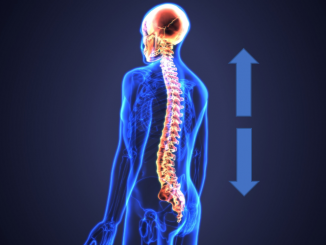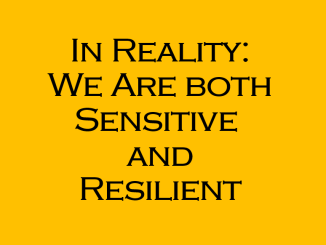A person experiencing high-stress levels will likely be acting outside of their normal behaviour patterns.
Stress, at least in the most surface-level way, is dealt with by our physiological systems through the release of Cortisol. This hormone stimulates several changes, including funneling away precious blood and oxygen from the high-level/reasoning areas of our brain.
Instead, blood and oxygen are fed to the areas of our brain that process emotions and activate these centres instead. So, when we need to be calm, measured, reasonable, and, most importantly being (and acting like) an adult, we might be doing the complete opposite!
There are a number of counselling articles on my website about the stress response, simply follow this link to access them.
Now comes some results from a University of Technology Sydney (UTS) study that show how high-stress levels can have even longer-lasting impacts on our mental health.
The researchers have found that inflammation in the hippocampus, an area of the brain that plays a crucial role in memory formation, learning, and emotional regulation, significantly alters motivation and behaviour in mice.
What causes inflammation of the hippocampus? Japanese researchers in 2022 identified these key domains:
- Viral infection
- Autoimmune disease
- Inflammation from peripheral organs
- Metabolic disorders
- Lifestyle
And, lastly, mental stress.
The UTS researchers tell us that hippocampal neuroinflammation occurs in a range of diseases and disorders such as Alzheimer’s, Multiple Sclerosis, and Depression.
People with these diseases often experience common symptoms such as apathy, difficulty with daily activities, and changes in food preferences. These symptoms also tend to be more severe in women than in men.
“While inflammation in the hippocampus is not solely responsible for behaviour changes, it likely triggers wider brain activity that influences behaviour,” said study co-author Dr Laura Bradfield, Director of the Brain and Behaviour Lab at UTS.
“This research suggests that treatments targeting hippocampal neuroinflammation could help reduce cognitive and behavioural symptoms in these diseases and improve brain health, especially in women,” she said.
The study was published in the journal Brain Behavior and Immunity.
Researchers induced inflammation by exposing mouse hippocampal cell cultures in the lab to a bacterial toxin that elicits a strong immune response.
They discovered that neuroinflammation increased movement and activity levels in both sexes but had a more pronounced effect on food-seeking behaviours in females.
“These findings provide fresh insights into how neuroinflammation affects brain function, potentially paving the way for new therapies that address the behavioural and cognitive symptoms of a range of diseases,” – Lead author Dr Kiruthika Ganesan.
“We hope that future research will focus on understanding the mechanisms behind these sex-specific effects, including the influence of hormones such as estrogen, and their implications for brain health.”
So, further proof, in my opinion at least, that we need to work on our stress and improve our self-care, and also try to do our best to not stress the people we love and care about.
Because if we don’t, we will never see the best of them!



